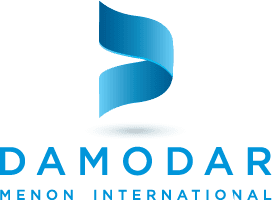Introduction
In the rapidly evolving textile industry, knitted fabric manufacturers play a crucial role in producing materials for various applications. From casual wear to industrial fabrics, knitted textiles are known for their flexibility, durability, and comfort. As sustainability and technological advancements gain momentum, manufacturers are adapting to meet these demands. This blog explores the key trends and innovations shaping the knitted fabric sector.
The Importance of Knitted Fabrics in Modern Textiles
Knitted fabrics have become indispensable in the textile industry due to their unique properties. Created by interlooping yarns, these fabrics offer superior softness and stretchability. This makes them ideal for apparel, home textiles, and technical applications.
Why Knitted Fabrics Are Essential
The flexibility of knitted fabrics allows them to mold easily to the body, providing a comfortable fit. This feature makes them popular in clothing items such as sportswear and activewear. Additionally, knitted fabrics are durable and easy to care for, making them a staple in upholstery and industrial textiles.
Key Trends in Knitted Fabric Manufacturing
The textile industry is witnessing significant changes, especially among knitted fabric manufacturers. Companies are now focusing on sustainability, advanced technology, and customization.
Sustainability Initiatives in Knitted Fabric Production
Sustainability has become a central focus. Manufacturers are shifting toward eco-friendly practices, such as using organic and recycled fibers. Reducing waste and minimizing water usage during production are also becoming standard practices.
Examples of Eco-friendly Initiatives
Many textile companies in India are adopting organic cotton and recycled polyester to meet consumer demand for greener products. These practices not only reduce environmental impact but also appeal to eco-conscious consumers.
Technological Innovations in Knitting
Technological advancements, such as 3D knitting and automated knitting machines, are transforming production. These innovations allow for faster, more precise fabric production, reducing the need for manual labor.
Advantages of 3D Knitting Technology
3D knitting enables manufacturers to create complex designs with minimal waste. This technology also allows for seamless garments, which are more comfortable and reduce fabric wastage. Circular knitting machines, which create fabrics quickly and efficiently, are also on the rise.
Blending Traditional and Modern Techniques
While technology is advancing, manufacturers are also integrating traditional techniques to create unique textures and patterns.
The Role of Traditional Techniques in Modern Manufacturing
Combining modern machinery with traditional methods allows for a wider range of fabric designs. For example, manufacturers may use traditional knitting patterns alongside high-tech machines to create intricate designs that appeal to both contemporary and traditional markets.
Customization in Knitted Fabrics
Customization has become increasingly important as businesses look for unique fabrics that set them apart from competitors.
Meeting Consumer Demands with Customized Solutions
Many knitted fabric manufacturers now offer customized fabrics, including different textures, colors, and weights. This allows brands to tailor their products to specific market demands.
The Future of Knitted Fabrics
The future of knitted fabrics lies in the integration of smart textiles and sustainable practices. As technology continues to evolve, knitted fabrics will play a significant role in both fashion and industrial applications.
Smart Textiles and Wearable Technology
Smart textiles, which incorporate sensors and conductive fibers, are set to revolutionize the textile industry. These fabrics can monitor vital signs, regulate temperature, or even interact with digital devices. Wearable technology, especially in sportswear, will likely be one of the fastest-growing segments.
Conclusion
The landscape of knitted fabric manufacturing is evolving rapidly, driven by technological advancements and a growing focus on sustainability. Textile companies in India are at the forefront of these changes, adapting their production processes to meet modern demands. By embracing both new technology and traditional techniques, manufacturers are offering innovative, high-quality products that cater to a variety of industries.
For businesses looking to succeed in the textile market, choosing a reliable knitted fabric manufacturer is essential. Prioritizing sustainability, customization, and quality will ensure long-term success in an increasingly competitive industry.
Hope this helps you to trade better through DMI. With our versatile trading platform, TEXchange Global, we give knitted fabric manufacturers in India the ability to buy and sell knitted fabrics faster, transparently, and globally. For more details, fabric companies in India can connect with our trading experts via email, phone, or social media.
